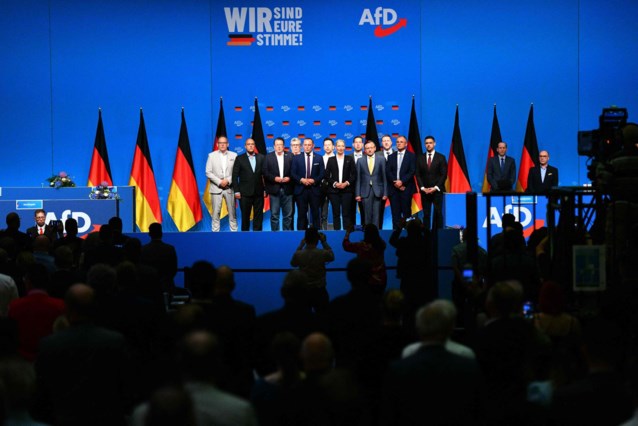
The German far-right party AfD has announced its decision to leave the Identity and Democracy (ID) group in the European Parliament. This move, which was widely expected, was decided during the AfD congress in Essen. The decision came after ID broke with the AfD over controversial statements made by AfD candidate Maximilian Krah about the Nazi SS. Although the AfD had previously excluded Krah from their party, they remained a member of the ID group, which includes right-wing populist and nationalist parties from various countries in Europe.
The AfD only joined the ID group last year, alongside other right-wing parties such as Italy’s Lega, France’s Rassemblement National (RN), the Netherlands’ PVV, and Vlaams Belang. Hungarian Prime Minister Viktor Orban had previously announced plans to form a new European parliamentary group with Austria’s FPÖ and the centrist movement of former Czech Prime Minister Andrej Babis (ANO). This move signaled a shift in alliances within the European Parliament among various right-wing political parties.
As a result of this change in group membership, the AfD will now be exploring new partnerships and alliances within the European Parliament. This reflects the evolving dynamics and relationships among right-wing parties in Europe. The political landscape in the European Parliament continues to shift, with parties realigning and forming new alliances based on shared ideologies and goals.
This development is significant as it shows how political affiliations can change quickly within the European Union. It also highlights how different countries have different views on certain issues and how these views can impact their alliance choices.
Overall, this decision by AfD signifies a change in direction for them as they explore new options for cooperation within Europe. It is likely that this move will set off a chain reaction of changes throughout Europe as different political groups reposition themselves based on changing circumstances and ideologies.





